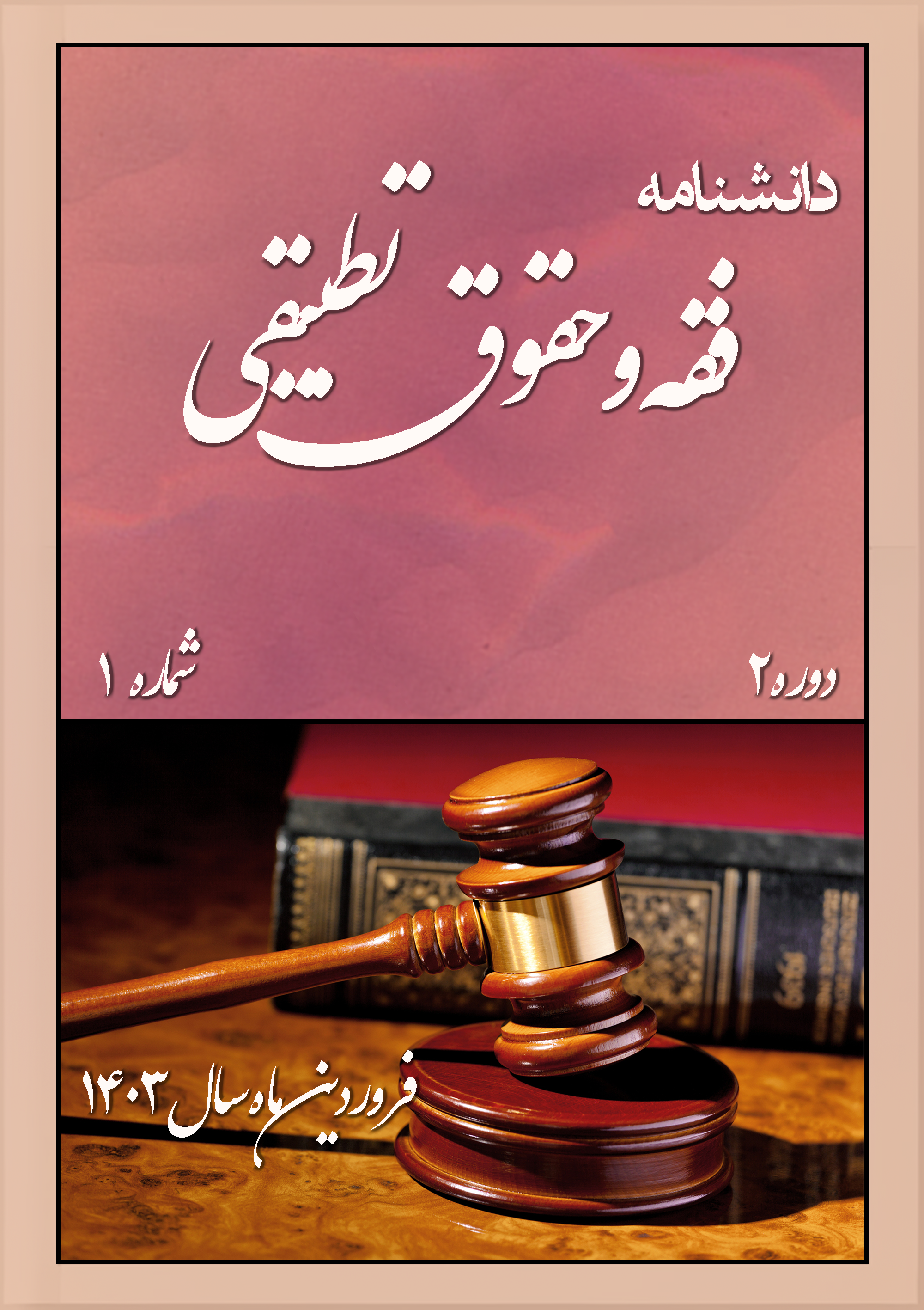بررسی تعارضات مبانی حقوق بشر در آموزههای اسلامی با اعلامیه جهانی حقوق بشر
کلمات کلیدی:
مبانی حقوق بشر, آموزه¬های اسلامی, اعلامیه جهانی حقوق بشر, کرامت ذاتی انسانچکیده
درباره ی حقوق بشر در قرآن و دیگر منابع اسلامی نکات گوناگونی وجود دارد. مسئله حقوق انسان، یکی از مهمترین و برجستهترین موضوعات زندگی بشر، به ویژه در قرآن کریم و شریعت اسلامی به شمار میرود. نوشتار حاضر بر آن است؛ تا با روش کتابخانهای و تحلیلی به مقایسه و تطبیق اعلامیه جهانی حقوق بشر و آموزههای اسلامی پرداخته؛ نقاط تعارض موجود را مورد بررسی قرار دهد. نتایج نشان داد که حقوق پیشبینی شده در اعلامیه جهانی حقوق بشرجامع الاطراف نمیباشد. حقوق بشر در آموزههای اسلامی به دلیل جامعیت و حاکمیت دین بر نگارش آن، دست برتر بر اعلامیه جهانی حقوق بشر دارد. با وجود اشتراکات فراوان مبانی حقوقی در آموزههای اسلامی با اعلامیه جهانی حقوق بشر، تفاوت و نوع نگاهی که به منشاء حقوق و انسان در آنها وجود دارد عملا موجب تفاوت قابل توجه آموزههای اسلامی با اعلامیه جهانی حقوق بشر شده است. بانیان اعلامیه عمدتا در عرصه مدنیت و اجتماع رویکرد تکساحتی دارند و به جنبه الهی، معنوی و اخروی انسان توجه چندانی ندارند. به عبارت دیگر، اعلامیه جهانی حقوق بشر، عمدتا روحی بشرمحورانه دارد در حالیکه حقوق بشر در آموزههای اسلامی از اساسی خدامحورانه برخوردار است.
دانلودها
مراجع
Ansari Baygani, A. (2022). Examining the Fundamentals of the Universal Declaration of Human Rights from the Perspective of Islamic Philosophy
Badi'e Abadi, M. R. (2015). A Comparative Study of the Universal Declaration of Human Rights with the Teachings of the Bible
Barghamadi, M. (2021). Comparing the Sociological Foundations of Human Rights from the Perspectives of Islam and the West
Elahitabar, A. (2013). An Introduction to Liberalism, Review and Criticism of the Foundations. Sahifeh Publication.
Eslami, S. H. (2012). The Universal Islamic Declaration on Human Rights and the Problem of Inequalities of Rights between Men and Women. Two Quarterly Journal of Human Rights, 7IS - 2, 81-110.
Habibzadeh, T., & Rabi'ezadeh, A. (2024). Current trends in Views on Islamic Human Rights After the Islamic Revolution. Quarterly Journal of Islamic Law, 21(80), 73-94.
Javadi Amoli, A. (1996). Philosophy of Human Rights. Asrar Publication.
Johnson, G. (1999). La Déclaration universelle des droits de l'homme: 40e anniversaire. Ney Publication.
Kadivar, M. (2003). Human Rights and Religious Intellectualism. Aftab Journal, 3(28).
Katouzian, N. (1978). Introduction to the Science of Law. Tehran University Publication.
Khorsandi Shamami, Y., Bagherzadeh Aval, M. R., Hosseini, S. E., & Kord Firouz Jayi, Y. A. (2022). Explaining the Principle of Freedom and Enumerating Some of the Rights Derived from it, from the Perspective of Allameh Tabataba'i The Development of Humanism in Western Philosophy. Two Quarterly Journal of Andishehaye Hoghuq Omomi, 12(1), 39-52.
Mahdavi, M. A. (2018). Fundamentals of Human Rights from the Perspective of the Quran and Its Comparison with the UN Charter
Mesbah Yazdi, M. T. (2001). Islamic Legal Theory. Imam Khomeini Institute Publications.
Mir Mousavi, S. A., & Haghighat, S. S. (1997). Theoretical Foundations of Human Rights in Islam. Qabasat Magazine(5&6), 154-175.
Moazen Safayi, A. (2021). The Semantics of Human Rights in the Treatise on Rights of Imam Sajjad and the Universal Declaration of Human Rights
Mojtahed Shabestari, M. (2000). A Critique of the Official Reading of Religion. Tarh No Publication.
Sadeghi Jabdarghi, S. (2011). Comparative Analysis of the International Bill of Human Rights, the Islamic Declaration of Human Rights, and Human Rights-related Issues in the Constitution of the Islamic Republic of Iran
Sadr, S. M. (2003). The Principles of the Declaration of Human Rights in the Balance of the Quran. Quarterly Journal of Quranic Researches(34).
Sharifi, A. H. (2004). Moral Contractivism, A Theory of the Justification of Moral Propositions (1). Journal of Ma'atef(22).
Vincent, A. (2013). Modern Political Ideologies. Qoghnous Publication.
Yazdi, M. (1996). Constitution for All. Amir Kabir Publication.
دانلود
چاپ شده
ارسال
بازنگری
پذیرش
شماره
نوع مقاله
مجوز
حق نشر 1403 نوید مسلمی, اکبر احمدی (نویسنده)

این پروژه تحت مجوز بین المللی Creative Commons Attribution-NonCommercial 4.0 می باشد.










